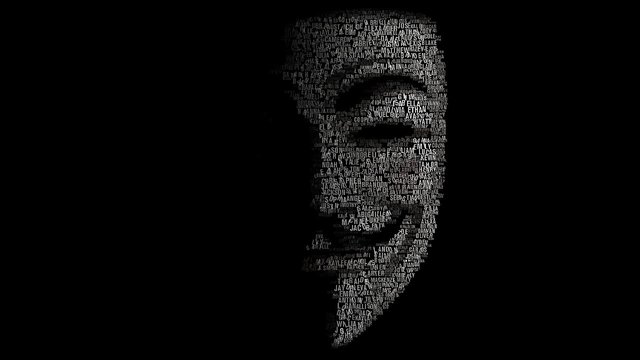Hackers; who are they and how did they come about?
To begin we must know that a hacker is defined as a computer expert capable of entering into computer systems and networks in which he was not invited, with various purposes such as information theft, alteration of information, publication of information, system evaluation or vandalism.
The term "Hacker" began to be used in reference to computers until the 60s. However, the first hackers are most ancient.

Source of the Image Courtesy of Pixabay.
Guillermo Marconi in 1903 said that his "wireless telegraphy" was safe, the magician Nevil Maskelyne ridiculed him by intervening the signal and spreading vulgarities in morse code.
During the Second World War, Polish mathematicians deciphered the code of the Enigma machine used by the Nazis to encrypt their messages. When the war broke out and the Nazis improved their machine, the mathematician Alan Turing helped build "Bombe", a machine capable of deciphering the Enigma code.
There is a movie about the life of Alan Turing and this particular event, is called The Imitation Game.
- In 1957 Joe Engressia, blind from birth and with absolute hearing, discovered that whistling on specific frequencies could make phones give him free calls anywhere in the world with only 7 years of age. As an adult he changed his name to Joybubbles.
After the so-called "Phreaks", fans of manipulating telephone systems, the first hackers themselves arise with the computer revolution in the 60s, especially at the Massachusetts Institute of Technology (MIT). There in train model clubs and artificial intelligence clubs, engineers and programmers met who did activities not so much for practical purposes but for fun and for the enjoyment of discovering what machines and themselves were capable of.
Throughout the years they have made jokes like putting a police car on the cusp of the school's Grand Dome, or intervening on the official website to announce that MIT had been purchased by Disney.
The hacker culture that emerged in institutions such as MIT, the University of California and the Carnegie Mellon Institute or in computer clubs such as the "Homebrew Computer Club" materialized in the GNU manifesto, which can be defined in a slogan: "The information he wants to be free. " And under this motto, much will be done in favor of others, or frankly criminal activities.

The traditional distinction is that "Black Hat" hackers, those dedicated to stealing information for illicit purposes are considered criminals and persecuted, while those of "White Hat" use their skills to evaluate the security of systems and help organizations . and those of "Sombrero Gris" are talented hackers who sometimes act illegally, but with good intentions. They are a hybrid between white hat and black hat hackers.

While some like Kevin Mitnik, the most wanted computer criminal in history, steal corporate secrets for their own benefit and others create viruses that harm millions of people, some of the most famous are controversial and difficult to categorize.
Julian Assange in his youth was known as the Mendax hacker, famous for penetrating NASA and Pentagon systems. He currently runs Wikileaks, an organization that filters information of global interest, and that some leaders judge as dangerous and others as necessary.
Steve Wozniak began his career by hacking telephone lines together with Steve Jobs in the 70s. It is said that they even called the Pope once. Then they founded Apple, a company well known for its capacity for innovation.
Edward Snowden, working for a US agency, released information that confirmed how the government spied on its citizens. Now he is persecuted.
- The Anonymus collective, among other actions, once attacked the pages of the Scientology church using a DDOS attack, which saturated the servers with requests until the page went down. This action was illegal and several went to jail, but many defend it by adducing the abusive practices of this cult. Anonymus also supported the rebels during the revolutions of Tunisia and Egypt in 2011.

Nowadays, the hacker culture is not so much identified with those who break into networks and steal information (called "Crackers"), but with people who enjoy exploring and expanding the capabilities of systems and many of them seek to change the world to improve. Even outside of computing, solving something everyday in an ingenious and creative way can be considered a "life hack".
The images used in this article are Public Domain and can be reused according to your copyright.
And once again, if you liked the content of this publication, do not forget to support me @jlmol7
References.
- https://www.theatlantic.com/technology/archive/2011/12/the-great-wireless-hack-of-1903/250665/
- https://en.wikipedia.org/wiki/Homebrew_Computer_Club
- https://www.warhistoryonline.com/war-articles/polish-mathematicians-role-in-cracking-germans-wwii-code-system.html
- https://en.wikipedia.org/wiki/Alan_Turing
- http://abcnews.go.com/US/worldwide-hacker-group-anonymous/story?id=37761302
- https://www.techworm.net/2017/06/steve-jobs-steve-wozniak-started-career-hackers.html
- https://www.makeuseof.com/tag/5-of-the-worlds-most-famous-hackers-what-happened-to-them/
- https://es.wikipedia.org/wiki/Edward_Snowden
It's very interesting & I didn't know that there is so much behind it! I really like the name and now even more, since I know where it comes from! These Hackers have to be so smart, I have no clue how to do such a thing, wouldn't even know where to start! Very interesting post - thanks for sharing! :)
Yes, they are really intelligent and very skilled people. They never cease to amaze us with what they are capable of doing behind a computer ... Thanks to you for reading.
Hacking has its own beauty especially for the white hat hackers. They help organisations know the flaws in their apps
Exactly, they use their knowledge to serve as security systems consultants, you have the example of Kevin Mitnik leading an elite white hat team.
This has always been a mysterious topic that has sparked my curiosity! Thank you for providing the information!
Thank you for the info! It is true that the word "hacker" has gained a more positive connotation recently, something along the lines of a smart person taking risks for the common good.
That's right, that's the new positive meaning about them, they're described as experts in computers and computer security. They develop techniques to improve these systems and make them less vulnerable ... Thanks to you for reading and commenting.